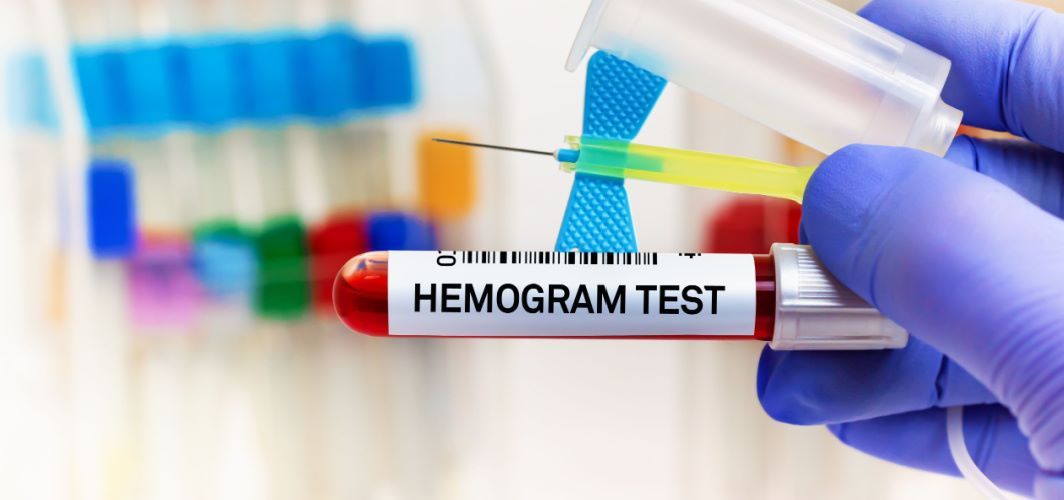General Health
Identifying The Symptoms Of Food Poisoning
7 min read
By Apollo 24|7, Published on - 28 June 2023, Updated on - 02 August 2023
Share this article
0
1 like

Have you ever felt sick to your stomach or had diarrhoea after eating or drinking something? This could be a sign of food poisoning. It's usually not too serious, and most people get better within a few days. Symptoms of food poisoning usually show up within a few hours to a couple of days after being eating the contaminated food. These symptoms primarily affect the digestive system but can also affect the entire body.
What is Food Poisoning?
Food poisoning, which is a type of foodborne illness, occurs when you get an infection after eating contaminated food. The food can be contaminated by bacteria, viruses, parasites, or toxins. They can get into the food during its preparation, handling, storage, or cooking. Food poisoning can happen to anyone, and it can be mild or very serious. It's important to know the symptoms of food poisoning so that you can get help quickly, thereby preventing any severe health consequences.
What are the Common Causes of Food Poisoning?
Food poisoning occurs when you consume food or water contaminated by:
- Viruses
- Bacteria
- Parasites
- Fungi
- Toxins
- Chemicals
The seriousness of the illness depends on the kind and quantity of contaminants that enter the body.
Common Types of Foodborne Pathogens
Some of the common types of pathogens that cause symptoms of food poisoning are:
- Campylobacter and Salmonella: Commonly found in poultry, raw or undercooked meats, and raw eggs.
- E. coli: Found in undercooked ground beef and contaminated produce.
- Listeria monocytogenes: Present in deli meats, soft cheeses, and unpasteurized dairy products.
- Norovirus and Hepatitis A virus: Spreads through contaminated food and water and is often linked to improper hygiene practices.
- Clostridium botulinum: Produces a dangerous toxin in improperly canned or preserved foods.
- Staphylococcus aureus: Found in foods that require handling and are stored at room temperature.
Factors Contributing to Food Contamination
There are various reasons for your food to get contaminated. Some of the common ones are:
1. Improper Food Handling: Improper heating or cooking of food, allowing bacteria to survive.
2. Inadequate Food Storage: Leaving perishable food at room temperature for an extended period, promoting bacterial growth.
3. Contaminated Water: Drinking water that is contaminated with harmful bacteria or parasites.
4. Cross-Contamination: Allowing pathogens to spread from raw food to cooked or ready-to-eat food, typically through utensils, cutting boards, or surfaces.
5. Inadequate Personal Hygiene: Poor hand hygiene before handling food, thereby increasing the risk of bacterial transfer.
6. Consumption of Raw or Undercooked Food: Consuming raw or undercooked meats, eggs, seafood, or unpasteurized dairy products that may contain harmful pathogens.
What are the Symptoms of Food Poisoning?
1. Gastrointestinal Symptoms
Food poisoning often presents with gastrointestinal symptoms, primarily affecting the digestive system. These symptoms can include:
- Nausea and vomiting: Feeling an urge to vomit and expelling the stomach contents.
- Diarrhoea: Frequent and loose bowel movements.
- Abdominal pain and cramping: Uncomfortable sensations and spasms in the abdominal area.
2. Systemic Symptoms
Food poisoning can also cause systemic symptoms that affect the entire body. These symptoms may include:
- Fever: An elevated body temperature above the normal range (98.7 degree celsius)
- Fatigue and weakness: Feeling tired, exhausted, or lacking energy
- Headache: Pain or discomfort in the head, often accompanied by pressure or throbbing
- Muscle aches: Soreness or discomfort in the muscles
3. Other Possible Symptoms
In some cases, food poisoning can lead to additional symptoms, such as:
- Dehydration: Excessive loss of fluids from the body, resulting in thirst, dry mouth, and reduced urine output.
- Blood in stool or vomit: The presence of blood in bowel movements or vomit, indicating internal bleeding or inflammation.
- Neurological symptoms: Dizziness, confusion, difficulty concentrating, or even seizures.
- Respiratory symptoms: Coughing, difficulty breathing, or shortness of breath
Onset and Duration of Symptoms
The time when symptoms start and how long they last can be different for each person and the type of food poisoning they have. Some people may experience symptoms within a few hours of eating contaminated food, while others may have a delay of a few days. The duration of symptoms can also be different, but usually, food poisoning goes away within a few days to a week.
First Aid for Food Poisoning Treatment
The first line of steps when suffering from food-borne illness are:
- Staying hydrated by drinking water, coconut water, or lemonade.
- Resting and avoiding solid foods unless advised otherwise.
- Managing nausea and vomiting using OTC medications or home remedies like chewing raw ginger.
- Easing abdominal pain and cramping using OTC pain relieving medications such as mefanamic acid.
- Monitoring and maintaining proper hygiene by washing hands before and after eating/preparing food using soap and water.
- Seek medical attention if the symptoms get worse
Differentiating Food Poisoning from Other Illnesses
Food poisoning is different from other illnesses in terms of its cause, symptoms, and onset. Let’s understand this better:
Illness |
Cause |
Symptoms |
Onset |
|
Food Poisoning |
Contaminated food or water |
Nausea, vomiting, diarrhoea, abdominal cramps, fever |
Within hours to days after consumption |
|
Stomach Flu |
Viral, bacterial, or parasitic infections |
Nausea, vomiting, diarrhoea, abdominal cramps, fever, headache |
Within 12 to 48 hours after exposure |
|
Food Allergy |
Abnormal immune reaction to specific food proteins |
Skin reactions, swelling, difficulty breathing, digestive symptoms, anaphylaxis (in severe cases) |
Within minutes to a few hours after consumption |
|
Food Intolerance |
Difficulty digesting certain substances or lacking specific enzymes |
Digestive symptoms, nausea, abdominal pain, sometimes skin symptoms |
Immediate or delayed by several hours after consumption |
When to Consult A Doctor?
Signs that indicate the need to consult a doctor include:
1. Worsening of symptoms
If you experience severe symptoms such as persistent vomiting, diarrhoea, abdominal pain, or difficulty breathing, it is recommended to seek immediate medical attention.
2. Dehydration
Consult a doctor if you experience signs of dehydration, such as
- Excessive thirst
- Dry mouth
- Dark urine
- Dizziness
3. High Fever
If you have a high fever (above 101.5°F or 38.6°C) that persists or is accompanied by chills and body pain, it is advisable to seek medical attention.
4. Blood in Vomit or Stool
If you notice blood in your vomit or stool, consult a doctor immediately.
5. Allergic Reactions
If you experience following symtoms after consuming a particular food, consult a doctor:
- Difficulty breathing
- Swelling of the face or throat
- Rapid heartbeat
- Confusion
- Dizziness
How to Prevent Food Poisoning?
Tips to prevent food poisoning include:
- Wash hands thoroughly before handling food and after using the restroom.
- Keep raw and cooked foods separate, and use separate utensils and cutting boards.
- Ensure that foods, especially meats, are cooked to the appropriate internal temperature.
- Refrigerate perishable foods promptly and follow storage guidelines to prevent bacterial growth.
- Choose fresh, high-quality ingredients and check expiration dates.
- Avoid consuming undercooked eggs, unpasteurized dairy, raw seafood, and raw sprouts.
- Heat leftovers to an appropriate temperature to kill any bacteria.
- Read ingredient labels carefully and prevent cross-contact with allergenic foods
Takeaway
Even with good food safety practices, you may experience food poisoning sometime in your life. However, most people get better on their own within a day or two without requiring medical help. However, if you or someone you know has a very serious reaction to food poisoning, it is important to seek medical help right away from a healthcare provider.
For more information, Consult Apollo’s Expert Doctors
FAQs
Q. What can I eat while experiencing food poisoning symptoms?
Allowing your stomach to settle before consuming any food or drinks is advisable. Stay hydrated by drinking water and oral rehydration solution (ORS). Additionally, you can try fruit juice popsicles.
Q. When is it safe to return to work or school after having food poisoning?
It is recommended to stay home for a minimum of 48 hours after experiencing diarrhoea or vomiting. If you have a fever, it is advisable to stay home for at least 24 hours after it has subsided.
Q. How is food poisoning diagnosed?
Your healthcare provider will inquire about your symptoms and recent food and beverage intake. Depending on your symptoms, they may request a stool sample or perform a blood test to identify specific parasites or bacteria causing the illness.
Q. Is food poisoning contagious?
Food poisoning can be contagious if someone comes into contact with the disease-causing microbes. These germs can spread through particles of vomit or faeces that may transfer on surfaces or hands, thereby contaminating another person's food or mouth.
Q. Who is most susceptible to foodborne illnesses?
Individuals with weaker immune systems are at a higher risk of contracting food poisoning or experiencing more severe reactions than those with stronger immune systems.
Medically reviewed by Dr Sonia Bhatt.
General Health
Leave Comment
Recommended for you

General Health
When To Take A Blood Test After Fever?
Discover when it is appropriate to undergo a blood test after experiencing a fever, ensuring accurate results for diagnosis and treatment decisions.

General Health
When To Get A Complete Hemogram Test?
Learn about hemogram tests and their importance in providing a complete and comprehensive analysis of your bloodwork and blood composition. Understand when to take these tests, the difference between hemogram and other CBC tests and how to interpret hemogram test results.

General Health
Health Calendar 2022
Here's a sneak-peak of how your health looks like in 2022. Keep following this space for tips on how to stay healthy and safe.
Subscribe
Sign up for our free Health Library Daily Newsletter
Get doctor-approved health tips, news, and more.
Visual Stories

Plant-based Foods That Are a Great Source of Iron
Tap to continue exploring
Recommended for you

General Health
When To Take A Blood Test After Fever?
Discover when it is appropriate to undergo a blood test after experiencing a fever, ensuring accurate results for diagnosis and treatment decisions.

General Health
When To Get A Complete Hemogram Test?
Learn about hemogram tests and their importance in providing a complete and comprehensive analysis of your bloodwork and blood composition. Understand when to take these tests, the difference between hemogram and other CBC tests and how to interpret hemogram test results.

General Health
Health Calendar 2022
Here's a sneak-peak of how your health looks like in 2022. Keep following this space for tips on how to stay healthy and safe.